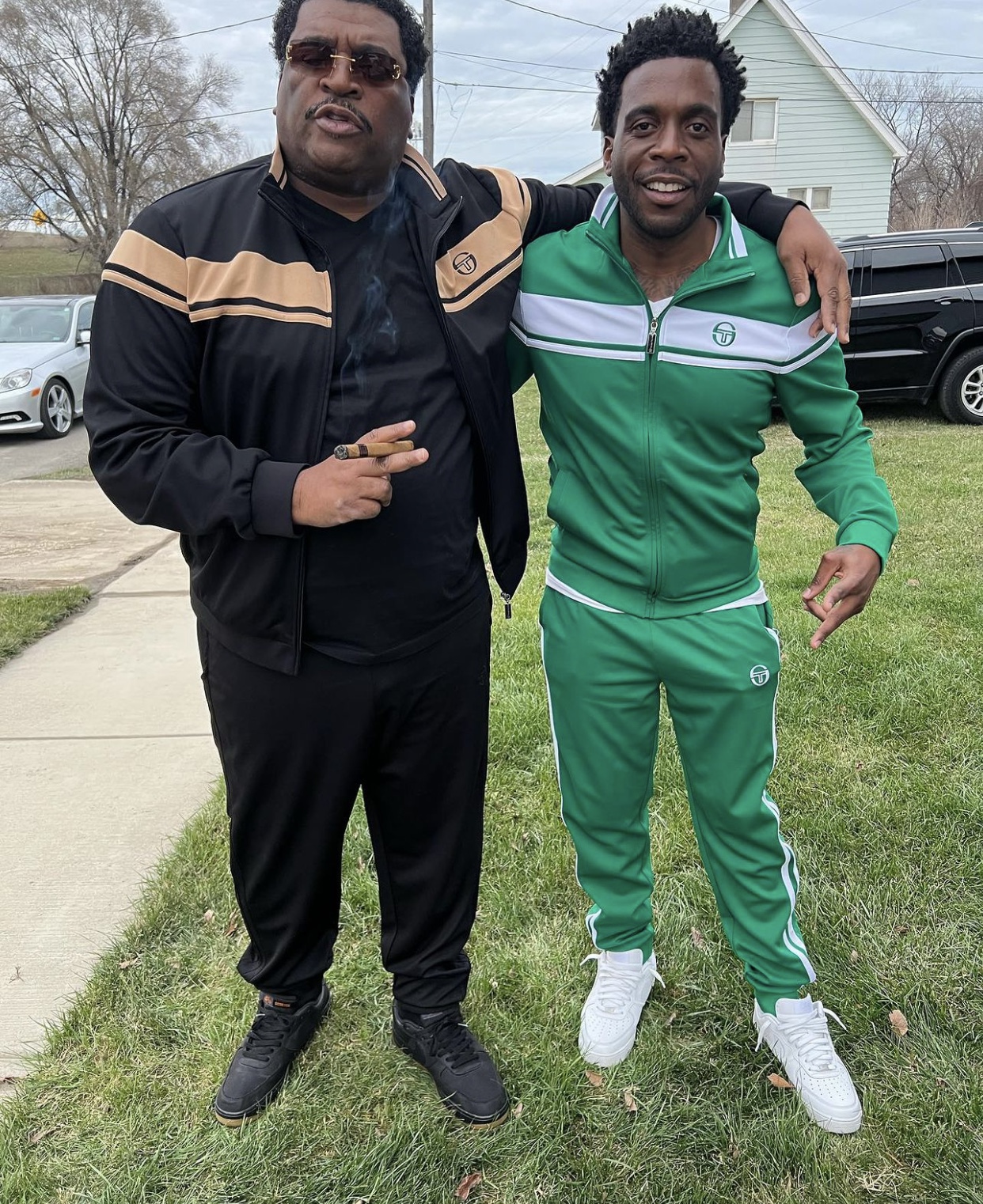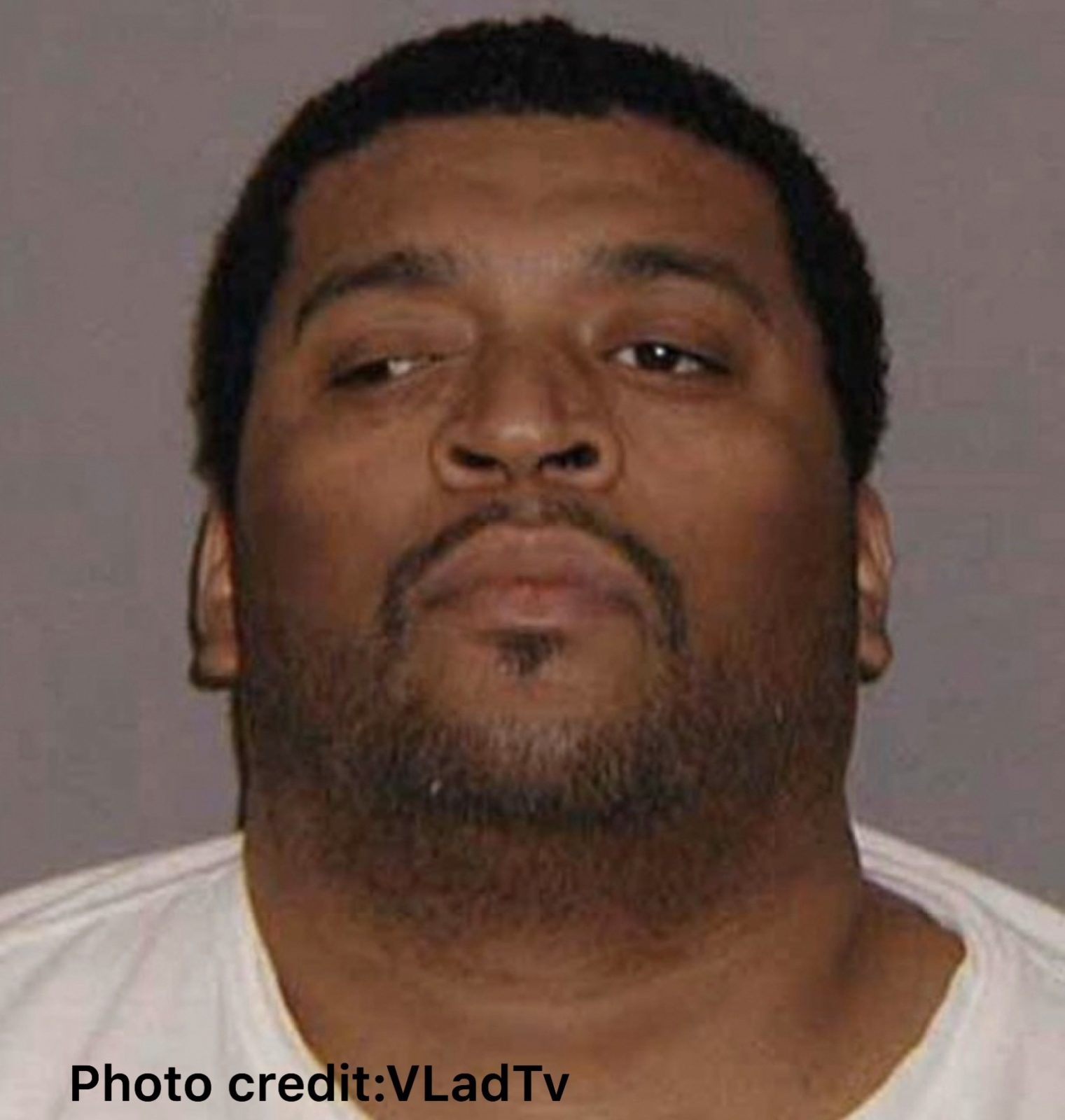Big Meech, the infamous rapper and CEO of Black Gangster Disciple Nation, has been a polarizing figure in both music and organized crime circles for years. But when did Big Meech get sentenced? This question has sparked curiosity among fans and critics alike. His legal troubles have been as dramatic as his rise to fame, and understanding the timeline of events is crucial to grasping the full story behind his imprisonment.
Before we dive into the gritty details, let’s set the stage. Big Meech isn’t just another rapper with a catchy beat—he’s a man whose life reads like a crime thriller. From his days as a leader of one of the largest street gangs in the U.S. to his transition into the world of hip-hop, Meech’s story is one of power, wealth, and ultimately, downfall. His sentencing was a pivotal moment that sent shockwaves through both the music and underworld communities.
In this article, we’ll explore the ins and outs of Big Meech's legal journey, breaking down the key moments that led to his sentencing. We’ll also delve into the impact of his imprisonment on his music career, his gang affiliations, and the broader implications for others involved. So, buckle up and get ready for a ride through the life and trials of one of the most controversial figures in recent history.
Here’s what we’ll cover:
- Biography and Background
- Legal Troubles Leading to Sentencing
- When Did Big Meech Get Sentenced?
- Impact on Gang Affiliations
- Effect on Music Career
- Controversies Surrounding His Case
- Family Life Amidst Legal Battles
- Public Reaction and Media Coverage
- Rehabilitation Efforts in Prison
- Big Meech's Legacy
Biography and Background
Big Meech, whose real name is Demetrius Flenory Jr., was born on September 27, 1973, in Chicago, Illinois. Growing up in the Englewood neighborhood, Meech was no stranger to the harsh realities of street life. By his teenage years, he had already risen through the ranks of the Black Gangster Disciple Nation (BGDN), eventually becoming one of its most prominent leaders.
In addition to his criminal activities, Meech ventured into the music industry, where he found success as a rapper. Under the stage name Big Meech, he released several albums, including "From tha Block 2 Da Briefcase," which gained significant attention. His music often reflected his life experiences, blending raw street narratives with catchy beats.
- Camila Aroujo The Rising Star Shaping The Future Of Entertainment
- Archie 2024 Everything You Need To Know About The Cutest Royal Baby
Below is a quick overview of Big Meech’s personal and professional life:
| Full Name | Demetrius Flenory Jr. |
|---|---|
| Date of Birth | September 27, 1973 |
| Place of Birth | Chicago, Illinois |
| Occupation | Rapper, Gang Leader |
| Alias | Big Meech |
Early Life and Rise to Power
Meech’s early life was shaped by the streets of Chicago. At just 15, he joined the BGDN and quickly climbed the ranks due to his strategic mind and leadership skills. By the mid-1990s, he had become a key figure in the organization, overseeing drug operations and expanding its influence across the country.
Despite his involvement in organized crime, Meech maintained a public persona as a community leader, often using his wealth to fund local initiatives. This duality made him both admired and feared by those around him.
Legal Troubles Leading to Sentencing
Big Meech’s legal issues began long before his eventual sentencing. In 2007, he was arrested on federal charges related to drug trafficking and racketeering. The investigation, dubbed "Operation Devil's Night," targeted high-ranking members of the BGDN, including Meech.
The evidence against him was substantial, with prosecutors presenting wiretaps, financial records, and testimony from cooperating witnesses. Despite his attempts to distance himself from the allegations, the weight of the evidence proved overwhelming.
Key Charges Against Big Meech
- Racketeering
- Drug Trafficking
- Money Laundering
- Obstruction of Justice
Each charge carried significant penalties, and the cumulative effect left little room for leniency. As the trial progressed, it became clear that Meech’s fate was sealed.
When Did Big Meech Get Sentenced?
The question on everyone’s mind—when did Big Meech get sentenced?—was finally answered on January 31, 2012. After a lengthy trial, Meech was sentenced to 30 years in federal prison for his role in the BGDN’s criminal activities. The judge presiding over the case cited the severity of the crimes and Meech’s leadership role as factors in determining the sentence.
For many, the sentence was seen as a victory for law enforcement agencies that had spent years dismantling the BGDN’s operations. However, others viewed it as an overreach, arguing that Meech’s contributions to the community should have been taken into account.
Impact of the Sentence
Meech’s sentencing sent shockwaves through the BGDN and beyond. It marked the end of an era for the organization, which had thrived under his leadership. The 30-year sentence also served as a deterrent to others involved in similar activities, sending a clear message about the consequences of engaging in organized crime.
Impact on Gang Affiliations
Big Meech’s imprisonment had a profound impact on the BGDN. Without his leadership, the organization struggled to maintain its cohesion and influence. Many of its members were either arrested or went into hiding, leading to a decline in its operations.
However, the gang’s legacy persists, with younger generations continuing to idolize figures like Meech. This has sparked debates about the role of media representation in perpetuating gang culture.
Post-Sentencing Gang Dynamics
After Meech’s sentencing, the BGDN underwent significant changes. New leaders emerged, but none were able to replicate Meech’s level of control and influence. The organization’s decline was further exacerbated by increased law enforcement efforts and community outreach programs aimed at reducing gang activity.
Effect on Music Career
Big Meech’s music career took a hit following his sentencing. While he continued to release music from prison, the absence of his charismatic presence on stage and in interviews affected his fan base. Nevertheless, his loyal supporters remained dedicated, ensuring that his music continued to resonate with audiences.
Interestingly, Meech’s incarceration became a central theme in his later works, with songs addressing topics such as justice reform and the struggles of prison life. This shift in focus helped broaden his appeal beyond the traditional street rap demographic.
Music Production from Prison
Despite the limitations imposed by prison life, Meech managed to stay active in the music industry. He collaborated with fellow inmates and outside producers, using technology to overcome the barriers of incarceration. His ability to adapt and continue creating music despite his circumstances has earned him respect from both fans and critics.
Controversies Surrounding His Case
Big Meech’s case was not without controversy. Critics argued that the prosecution’s reliance on cooperating witnesses compromised the integrity of the trial. Others questioned whether the sentence was proportionate to the crimes committed.
Amidst these debates, Meech himself has maintained his innocence, claiming that he was targeted due to his public profile and community involvement. These claims have fueled ongoing discussions about the fairness of the justice system.
Public Opinion and Legal Reform
Public opinion on Big Meech’s case remains divided. Some view him as a victim of systemic bias, while others see him as a symbol of the dangers of gang culture. This dichotomy highlights the complexities surrounding cases involving high-profile individuals with criminal backgrounds.
Family Life Amidst Legal Battles
Big Meech’s legal troubles have taken a toll on his family. His wife, Tameka “Mama Tee” Flenory, has been a vocal advocate for his release, using social media and public appearances to raise awareness about his case. Their children have also faced challenges, growing up in the shadow of their father’s notoriety.
Despite these difficulties, Meech’s family has remained a source of support, visiting him regularly in prison and helping to keep his legacy alive.
Family Support and Advocacy
Tameka Flenory has become a prominent figure in her own right, using her platform to advocate for justice reform and support other families affected by incarceration. Her efforts have shed light on the broader issues facing families of incarcerated individuals.
Public Reaction and Media Coverage
Big Meech’s sentencing received widespread media coverage, with outlets across the country reporting on the details of the case. The trial was covered extensively, with journalists analyzing the evidence and testimony presented in court.
Social media played a significant role in shaping public perception, with hashtags like #FreeBigMeech trending during key moments of the trial. This digital activism highlighted the power of technology in influencing legal outcomes.
Media’s Role in Shaping Perception
The media’s portrayal of Big Meech has been both a blessing and a curse. While it has brought attention to important issues, it has also perpetuated stereotypes about gang culture and criminal behavior. Balancing these narratives remains a challenge for both journalists and advocates.
Rehabilitation Efforts in Prison
During his time in prison, Big Meech has engaged in various rehabilitation programs, including education and vocational training. These efforts have been part of his broader push for self-improvement and a chance to turn his life around.
His participation in these programs has also served as an example for other inmates, demonstrating the potential for positive change even in the most challenging circumstances.
Prison Programs and Personal Growth
Big Meech’s involvement in prison programs has been a testament to his resilience and determination. From writing workshops to mentorship initiatives, he has used his platform to inspire others and contribute to the community in meaningful ways.
Big Meech's Legacy
As we look back on Big Meech’s life and career, it’s clear that his legacy extends far beyond his music and criminal activities. He has become a symbol of the complexities of modern society, where success and failure often walk hand in hand.
While his sentencing marked the end of one chapter, it also opened the door to new opportunities for growth and transformation. Only time will tell how his story will be remembered, but one thing is certain—Big Meech’s impact will continue to resonate for years to come.
In conclusion, the question of when did Big Meech get sentenced is just the beginning of a much larger conversation about justice, redemption, and the human spirit. As you reflect on his story, consider the lessons it offers and how they might apply to your own life. And don’t forget to share your thoughts in the comments below or explore more articles on our site!
- Is Greg On The 5 Married The Inside Scoop Yoursquove Been Waiting For
- America First Fareed Zakarias Perspective On The Rising Trend


